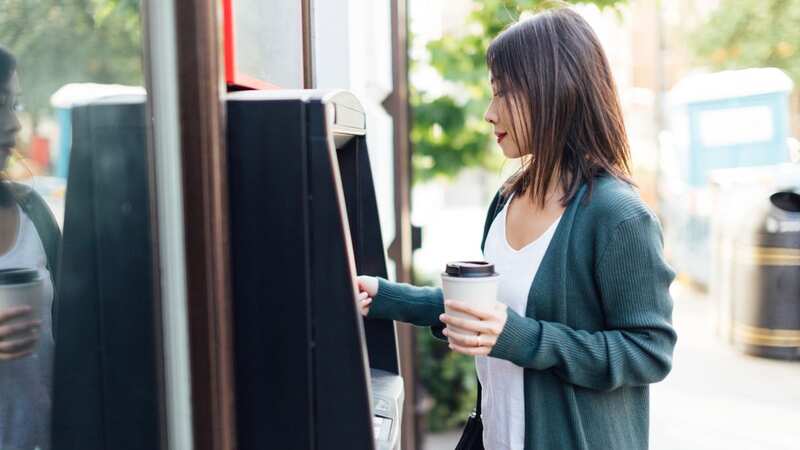Banks to face fines if they don't provide access to free cash withdrawals

Banks will reportedly face fines if they fail to provide free access to cash withdrawals within three miles of consumers and businesses under Government plans.
The HM Treasury will publish new guidelines soon which will set out its expectations on how banks will maintain the general public's access to physical cash.
In urban areas, free cash withdrawals and deposit services - such as an ATM or branch - must be available within one mile and in rural areas it's three miles. The distances were chosen to maintain the current level of coverage of free access to cash, through ATMs or face-to-face services. The limits could be extended if cash use declines in the future.
Under the new rules, the UK's financial industry regulator, the Financial Conduct Authority (FCA), will have the power to fine banks that fail to provide free access to withdraw money. Alongside this, current account holders can not face hidden fees from banks when withdrawing cash.
According to reports, economic secretary to the Treasury Andrew Griffith is to make a policy statement on the plans, although a date for this statement is not confirmed.
 Bank of Dave self-made millionaire giving away money to 'keep kids working hard'
Bank of Dave self-made millionaire giving away money to 'keep kids working hard'
Over the last few years, the closure of local bank branches and the decline in free-to-use ATMs saw campaigners which included the consumer champion group Which? call on ministers to take action.
Jenny Ross, Editor of Which? Money, said: "Which? successfully led the campaign for laws to protect free access to cash for the millions of people across the country who rely on it, amid widespread bank branch and ATM closures in recent years.
"Now that it has passed new laws, the government must put in place measures which ensure those who want to withdraw or deposit cash are appropriately served in their local communities. The Financial Conduct Authority must make use of its new powers to ensure banks meet their obligations and stand ready to direct them to address any gaps."
According to an analysis by NationalWorld, since the start of 2015 over 5,000 bank branches have closed and a further 400 are to go by the end of the year. These closures have left some areas of the UK without free cash machines. In 2019, Burslem in Stoke-on-Trent became the first large town to lose all its free cash points after a string of major bank branch closures.
Even though the UK has become a largely digital hub in regard to money, millions of people continue to rely on cash. Campaigners have warned that vulnerable groups - particularly older Brits - could become incredibly isolated if they do not have free access to physical money.
Over the last few years, "banking hubs" have began to pop up across the country as a replacement to branches. Banking hubs are often shared by several High Street banks with those involved also sharing the running costs. They operate similarly to a traditional bank but are available to everyone, not just customers of a particular bank.
Some banks also offer a mobile banking service, which is where your bank brings a bus to your local area that has the services that are usually available at your branch. Some banks also use buildings such as village halls or libraries to offer mobile banking services.
The Mirror has contacted the Treasury for comment.
Read more similar news:
Comments:
comments powered by Disqus

































